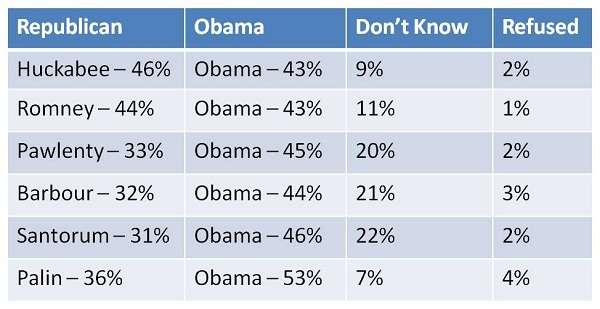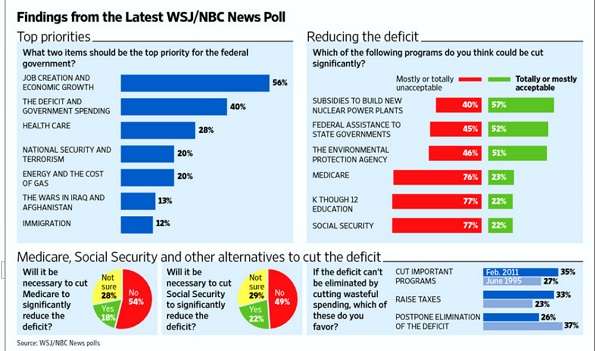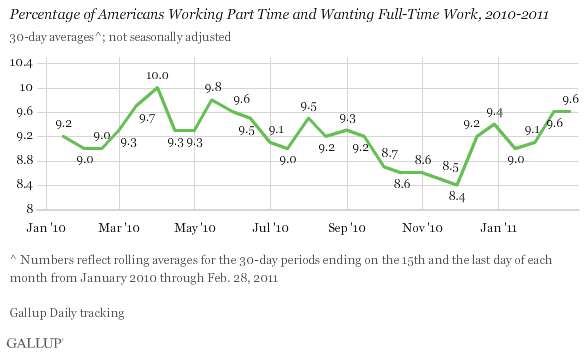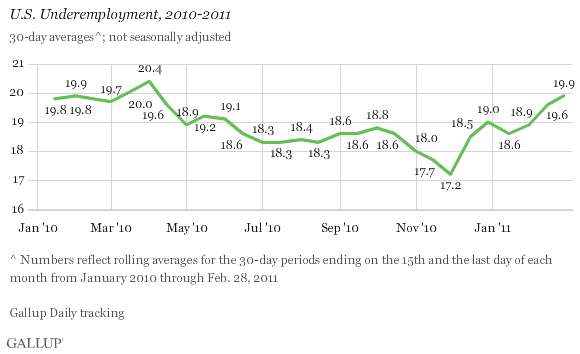-
Flap’s Links and Comments for March 3rd from 20:23 to 20:32
These are my links for March 3rd from 20:23 to 20:32:
- Jim DeMint: Public Broadcasting Should Go Private – When presidents of government-funded broadcasting are making more than the president of the United States, it's time to get the government out of public broadcasting.
While executives at the Public Broadcasting Service (PBS) and National Public Radio (NPR) are raking in massive salaries, the organizations are participating in an aggressive lobbying effort to prevent Congress from saving hundreds of millions of dollars each year by cutting their subsidies. The so-called commercial free public airwaves have been filled with pleas for taxpayer cash. The Association of Public Television Stations has hired lobbyists to fight the cuts. Hundreds of taxpayer-supported TV, radio and Web outlets have partnered with an advocacy campaign to facilitate emails and phone calls to Capitol Hill for the purpose of telling members of Congress, "Public broadcasting funding is too important to eliminate!"
PBS President Paula Kerger even recorded a personal television appeal that told viewers exactly how to contact members of Congress in order to "let your representative know how you feel about the elimination of funding for public broadcasting." But if PBS can pay Ms. Kerger $632,233 in annual compensation—as reported on the 990 tax forms all nonprofits are required to file—surely it can operate without tax dollars.
The executives at the Corporation for Public Broadcasting (CPB), which distributes the taxpayer money allocated for public broadcasting to other stations, are also generously compensated. According to CPB's 2009 tax forms, President and CEO Patricia de Stacy Harrison received $298,884 in reportable compensation and another $70,630 in other compensation from the organization and related organizations that year. That's practically a pittance compared to Kevin Klose, president emeritus of NPR, who received more than $1.2 million in compensation, according to the tax forms the nonprofit filed in 2009.
++++++
Agreed
- The Kochs fight back – Listing Who, What and Why – Faced with an avalanche of bad publicity after years of funding conservative causes in relative anonymity, the billionaire industrialist Koch brothers, Charles and David, are fighting back.
They’ve hired a team of PR pros with experience working for top Republicans including Sarah Palin and Arnold Schwarzenegger to quietly engage reporters to try to shape their Koch coverage, and commissioned sophisticated polling to monitor any collateral damage to the image of their company, Koch Industries.
At the same time, through their high-priced lawyers, private security detail and influential allies in conservative politics and media, the Kochs have played hard ball with critics and suspected foes.
Young environmental activists who pranked them have been hit with a lawsuit seeking more than $100,000 in damages, and the leak of an internal document describing their political activities resulted in an investigation – complete with document analysis and interviews of suspects – that eventually identified the mole.
Both their new openness and their aggressive – and sometimes secretive – tactics were on display before and during the Kochs’ closed-door, invitation-only four-day annual winter meeting of conservative donors and leaders that concluded Tuesday with a breakfast at the pricey resort that hosted it here in the Palm Springs suburbs.
+++++++
Read it all.
I missed this piece a month ago when I covered the Koch Conference in Ranch Mirage
- The Enquirer’s Edwards Source’s Story – Observations by Mickey Kaus – Everybody’s favorite Rielle Hunter source, Pigeon O’Brien, tells her story in the Huffington Post. I learned some things: 1) A lot more people were investigating the Edwards/Hunter sex scandal than I’d thought. It wasn’t just the National Enquirer and Sam Stein of HuffPo. Other campaigns and other publications were calling O’Brien for confirmation. Which raises the question: If so much of the MSM knew or suspected the story was true, why was it subequently so easily cowed by the efforts of John and Elizabeth Edwards to cover it up? 2) After Edwards’ first semi-confession, when he swore he couldn’t be the father of Rielle Hunter’s child, MSM reporters took his side with O’Brien:
Rielle was flown out of the country and Edwards “confessed” on television (the first confession, the one in which he denied he was Quinn’s father) but included a troubling aside that he’d been with her at the hotel late at night because of her “troubles.” The press leaped on this and my phone rang all night: She’s blackmailing him for Andrew Young’s baby! Appalled, I spoke out and was told again and again, off camera, “Why do you defend her? Edwards says she’s a slut. Who knows whose baby that is?”
++++++++
Read it all
I first learned of the National Enquirer and the entire flap through reading Mickey's blog
- Jim DeMint: Public Broadcasting Should Go Private – When presidents of government-funded broadcasting are making more than the president of the United States, it's time to get the government out of public broadcasting.
-
Flap’s Links and Comments for March 3rd from 18:35 to 18:38
These are my links for March 3rd from 18:35 to 18:38:
- Think Ignorance Swings and Misses – Apparently the deconstructions I have been doing of Think Progress's attacks on Charles and David Koch and their company, Koch Industries, have hit home. That web site has now responded with a silly attack on me, titled "Blogger From Koch's Law Firm Defends Koch, Doesn't Disclose Ties." Lee Fang writes:
Fighting back against public scrutiny, Koch Industries is relying on a small army of conservative bloggers, reporters, and lobbyists. Chief among them is John Hinderaker, a blogger at the "Powerline Blog." However, in his now daily defense of the Koch brothers, Hinderaker has failed to disclose that his law firm counts Koch Industries as a major client.
I don't know about "major," but Koch Industries is a client of my firm. This is no secret; the firm's web site lists Koch as a client and identifies four lawsuits in which we have represented Koch entities. (I had no involvement in any of those cases.) When I mention companies, I never say whether they are clients of my law firm. There are two reasons for this. First, try to I keep my political/media activities separate from the firm's law practice, to the point of not even using a firm-owned computer to write posts.
+++++++
Read it all
- How the John Edwards Affair Ended Up in the Enquirer – Lisa Druck was trouble. You'd run into her at Nell's where we all tended to hang out and she'd be in a panic. Some guy would be running from her, taxiing quickly to another club. She'd storm the bathrooms and you could hear her voice from behind the closed doors, operatically singing the latest drama.
Yet we liked her. There was something charming and feral in her aggressive bubbliness. The seedier stuff bothered my prudish self, stories of strip poker and non-monogamy. But I was seeing her ex-boyfriend and if I wanted to keep him out of the riskier stuff, I had to like her. So I did.
That was the 1980s. I grew up and years passed and Lisa Druck vanished from my life, only leaving behind her likeness in a shocking book by our friend Jay McInerney, Story Of My Life.
- Think Ignorance Swings and Misses – Apparently the deconstructions I have been doing of Think Progress's attacks on Charles and David Koch and their company, Koch Industries, have hit home. That web site has now responded with a silly attack on me, titled "Blogger From Koch's Law Firm Defends Koch, Doesn't Disclose Ties." Lee Fang writes:
-
IN-Sen Video: Indiana State Treasurer Richard Mourdock Announces Race Against Sen Richard Lugar
Republican Senator Richard Lugar is in trouble against Richard Mourdock.
Barring an unexpected decision to retire before November 2012, Lugar will face Indiana voters for the sixth time as the incumbent. He recently raised an estimated $400,000 from one event and has amassed a campaign warchest in excess of $2.3 million. Expect that total to swell in coming months.
He’s also raised something else – the hackles of Indiana Tea Party members and a primary challenger, Indiana State Treasurer Richard Mourdock.
According to the conventional wisdom, Lugar’s seniority, establishment connections, well-funded campaign treasury, and easy access to sympathetic national media coverage should make him a shoo-in for a seventh term.
Don’t count on it. Lugar made a big mistake by claiming last year that the Tea Party needed to “get real.” He might as well have put on a dunce cap because such remarks often hint at the very attitudes of overweening pride of incumbency and blindness to genuine voter dissatisfaction that have driven many a respected incumbent into retirement – think Tom Daschle, Jim Wright, Tom Foley and Robert Bennett.
Saying things like that is how you become the latest installment of that old, familiar Washington story – former senator.
My bet is that Lugar retires within the next six months.
-
Flap’s Links and Comments for March 3rd from 15:39 to 15:49
These are my links for March 3rd from 15:39 to 15:49:
- Wisconsin Senate Does Not Need a 3/5ths Quorum to Pass Much of the Budget Bill – Super Quorums under the Wisconsin Constitution
This essay takes a brief and preliminary look at the remedies available to the Wisconsin Senate to enact its 2011 proposed budget legislation without Democratic senators who fled the state in February 2011. Article VII, §8 of the Wisconsin Constitution requires a three-fifths quorum only for statutes that are fiscal, that is, statutes that actually appropriate money, impose taxes, create a debt, or release a claim owed to the state. Even then, these categories have consistently been interpreted in the most limited form conceivable.
For example, in State v. Stitt (1983), the Wisconsin Supreme Court determined that the issuance of short-term debt was not debt under Article VIII of the constitution and thus was not “fiscal” so as to trigger the three-fifths quorum and roll call requirements.
The Wisconsin attorney general in 1971 gave a formal opinion to the legislature that a bill that changed collective bargaining rights substantially was not fiscal in nature and was not subject to the three-fifths super quorum provision. Because collective bargaining rights and that very statutory chapter (ch. 111) are at the heart of the proposed Senate Bill 11, the most controversial portions of the bill could be passed constitutionally with just a simple majority of elected members present, without a three-fifths quorum.
Though some provisions in Senate Bill 11 are clearly fiscal — e.g., increasing appropriations for needy families, health care, and corrections — much of the bill is not fiscal. Even provisions that observers might reasonably assume to be fiscal are probably not fiscal under Wisconsin law, such as the rule that in the future employers can agree to pay no more than 88% of health care costs.
Because much of Senate Bill 11 is not subject to the three-fifths quorum, these portions could be separated from the rest of the bill and passed by majority vote in the presence of a simple majority of the elected Senators. With Republicans holding 19 of the Wisconsin Senate’s 33 seats, Republicans thus constitute a quorum to pass much of Senate Bill 11 without any Democratic Senators present or voting. The rest of the bill would have to await the return of the wandering Senators and the return of a three-fifths quorum.
- Government Unions: Restore Voter Control and a Nonpartisan Civil Service – Abstract: With Wisconsin Governor Scott Walker attempting to rein in the unbalanced power of government unions, and given the fierce stranglehold that union members have on their ever-increasing taxpayer-provided benefits, now is a crucial time for Americans to understand the difference between private-sector and public-sector unions. Collective bargaining in the private sphere—where companies face competition—is a world away from collective bargaining in government—which faces no competition, and where unions have a legal monopoly. Heritage Foundation labor expert James Sherk explains why it is time to restore voter control over elected government, and how it can be done.
Collective bargaining by unions takes place very differently in government than it does in the private sector. Private-sector unions have competitors and bargain over the profits they help create. The government earns no profits. Government unions have a legal monopoly and bargain for a greater share of tax dollars. Collective bargaining in government means that voters’ elected representatives must agree on tax and spending decisions with union representatives.
Collective bargaining also politicizes the civil service. Government unions negotiate contract provisions that force workers to join and subsidize their fundraising. These subsidies have made them the top political spenders in the country. They use that money to lobby for higher taxes and protect their inflated compensation.
compensation.
America can no longer afford these special-interest subsidies. State and local governments should:
* Restore voter control over government spending by ending collective bargaining with government unions.
* Restore a nonpartisan civil service by ending subsidies for union fundraising and giving workers the choice of paying union dues. Voters should tell the government how to spend their money, not the other way around.+++++++
Read the piece from the Heritage Foundation in full
- Wisconsin Senate Does Not Need a 3/5ths Quorum to Pass Much of the Budget Bill – Super Quorums under the Wisconsin Constitution
-
NM-Sen: Former Rep Heather Wilson to Announce 2012 Senate Race

GOP Former Representative Heather Wilson
She will announce her candidacy next week.Former New Mexico congresswoman Heather Wilson will announce her Senate candidacy Monday, two Republicans inform POLITICO.
Wilson is expected to be the first official candidate in the race since five-term Democrat Sen. Jeff Bingaman announced his retirement on Feb. 18.
Her entry into the open seat contest hands Republicans a top shelf recruit in a contest the party believes it has a realistic shot at winning.
A former five term congresswoman, Wilson chose to run for the open seat of retiring Sen. Pete Domenici in 2008, but was upended in the primary by now Rep. Steve Pearce.
Pearce has been vocal about how his party should come together to select the proper “conservative candidate” to run for Bingaman’s seat in order to head off the divisiveness that aided Sen. Tom Udall three years ago.
But GOP insiders believe that Wilson’s more moderate profile makes her the most electable candidate in the field. Highly respected on national security issues, Wilson also questioned the cost of the Medicare prescription drug law and wasn’t shy about criticizing then Majority Leader Tom DeLay.
Rep. Steve Pearce and Lt. Governor John Sanchez are considering running against her in the GOP primary. Democrat Rep. Martin Heinrich and New Mexico State Auditor Hector Balderas are considering the race from the Democrat side.
-
President 2012: I’ll Get Serious About a Sarah Palin Presidential Run?

July 2010 TheIowaRepublican.com commissioned statewide poll
Well, I am not getting serious about a Sarah Palin run at all.Why?
She has simply NOT polled very well against President Obama in early GOP primary states. I have written about a number of the polls where she has underperformed the past few months and specifically here.
Sarah Palin has not traveled to Iowa to ask voters for support because she is not running for President in 2012.
-
Video: California Board of Equalization Casts Doubt on Amazon Internet Sales Tax Legislation
Robert Ingenito, Chief of Revenue Estimates, California State Board of EqualizationNow, at a California Assembly hearing on “Use Taxes” the California Board of Equalization staff raised calls for alarm as to what this legislation would really mean for California. Read the draft Board of Equalization Staff Legislative Bill analysis here (Pdf.)
Some interesting points in the analysis:
COST ESTIMATE
- The BOE would incur costs to administer this bill. These costs would be attributable to notifying affected out-of-state retailers and ensuring compliance, potential litigation costs, and costs related to revising the BOE’s Regulation 1684 and related publications, and answering inquiries. An estimate of these costs is pending.
REVENUE ESTIMATE
- The revenue impact from this proposed change to the definition of a “retailer engaged in business in this state” is subject to considerable uncertainty. And, there could be an unknown delay of any revenues due to potential litigation arising from enactment of this provision. In a purely static world (no behavioral changes resulting from the change in tax policy) with full compliance, we estimate that the proposed change would lead to a state and local revenue increase of $152 million in 2011-12 (a half-year effect) and $317 million in 2011-12. These estimates are based on the combination of (1) the amount of revenues currently being collected in New York, adjusted for California’s larger economy, and (2) increased revenues associated with out-of-state retailers that sell to California consumers on eBay that would have a use tax collection obligation under the provisions of this bill (see Comment 3).
- However, the State’s likelihood of actually realizing these revenues depends entirely on (1) Internet retailers’ (such as Amazon and Overstock) willingness to continue their affiliate programs, and (2) other retailers’ willingness to continue to sell on eBay and to fully comply with the added use tax collection obligations imposed by this bill. We have received direct confirmation from Amazon that it will terminate its relationship with its 10,000 California affiliates should this measure become enacted. We estimate that Amazon currently comprises roughly 50 percent of the Internet sales of large firms who currently do not have nexus in California. Consequently, the static revenue estimates cited above, adjusted for Amazon’s response, would drop to $114 million in 2011-12 and $234 million in 2012-13. If other firms were also to terminate their affiliate programs in response to the enactment of this bill, the potential revenue gain would be further diminished. Similarly, while we lack the data to determine to what extent out-of-state retailers would discontinue their use of eBay to sell to California consumers, any drop in such eBay usage would even further lower the revenue gain.
- Additionally, the termination of affiliate programs would have an adverse impact on state employment, which in turn would lead to lower revenues from sources such as the personal income tax and the corporation tax. The amount of these potential reductions is unknown.
In fact, California Board of Equalization member and former California State Senator George Runner issued the following press release (Pdf):
Board of Equalization Member Senator George Runner today warned that Amazon will terminate its relationships with more than 10,000 California-based affiliate businesses if pending legislation becomes law.
“In no uncertain terms, Amazon has made it clear to me that the checks they send Californians will be cut off overnight if pending legislation aimed at regulating their operations becomes law,” said Runner.
Runner cited a letter he received from Paul Misener, Amazon’s Vice President for Global Public Policy, in which Misener cites four specific bills—AB 153 (Skinner), AB 155 (Calderon), SB 234 (Hancock), SB 655 (Steinberg). These measures all aim at requiring out-of-state online retailers like Amazon to collect sales tax on purchases made by Californians.
In his letter Misener writes: “If any of these new tax collection schemes were adopted, Amazon would be compelled to end its advertising relationships with well over 10,000 California-based participants in the Amazon ‘Associates Program.’”
Runner warned, “This is an imminent threat to California jobs. Lawmakers would do well to pay attention.”
Misener notes that similar statewide terminations have already occurred in North Carolina, Rhode Island and Colorado after those states enacted similar laws.
Misener explains that these participants—also known as affiliates—“place Amazon advertisements on their websites, and then are compensated by Amazon for purchases made by visitors whom they refer to Amazon’s website.”
A revised Board of Equalization analysis of the pending Assembly measures cautions that 50% of projected revenues would vanish as a result of Amazon’s action. Revenues would be “further diminished” if other firms also terminated their affiliate programs.
The BOE analysis also warns of an “adverse impact on state employment,” resulting in lower corporate and personal income tax revenues for the state.
In conclusion Runner said, “The Legislature needs to stop considering bills that would hurt jobs and instead start improving California’s dismal business climate so we can attract much-needed jobs to our state.”
So, the California Board of Equalization understands just like the other states that this legislation is disputable in its federal constitutionality, will raise far less revenue than touted and will cost Californians jobs.
For what?
Oh yeah – the answer is easy. California Democrat legislators, including Assemblywoman Nancy Skinner (D-Berkeley) and Democrat State Senate leader Darrell Steinberg (D-sacramento) can milk campaign contributions from Wal-mart, Target, Home Depot Barnes and Noble, et al. who desire a competitive business advantage over Amazon, e-Bay and Overstock.com.
Look for these bills to come back over and over again as the Democrats milk them for all that they are worth – a bad deal for California.
-
Flap’s Links and Comments for March 3rd from 10:49 to 10:55
These are my links for March 3rd from 10:49 to 10:55:
- Mitch Daniels’s ‘Truce’ Call Finds Strong Support in WSJ Poll – The latest Wall Street Journal/NBC News poll appears to vindicate Indiana Gov. Mitch Daniels‘s repeated insistence that the country needs a “truce” on fights over social issues while it grapples with its mounting economic challenges.
Nearly two thirds of Republican primary voters said they would be “more likely” to vote for a GOP primary candidate who says the party should focus more on the economy and the deficit and less on social issues such as gay marriage and abortion. Only 8% said they would be less likely to vote for such a candidate. The rest said they were unsure.
The call to focus on economic over social concerns was particularly appealing to suburban women, a key swing voting bloc, and to white men overall.
Many Republicans have dinged Mr. Daniels since he called for “a truce” on the social issues in an interview with the National Journal last year. While mulling a potential run for the 2012 GOP nomination, the Indiana governor has continued to double down on the same theme, most recently in a prominent speech before the Conservative Political Action Conference last month.
Many Republicans have said privately that they considered Mr. Daniels’ position politically unwise. But the WSJ/NBC poll would seem to prove them wrong.
+++++++
The demographic Daniels will need to win both the primary and a general election against Obama
- Gaddafi bombs oil areas, faces crimes probe – Rebels Call out for President Bush – Opposition activists called for a no-fly zone, echoing a demand by Libya's deputy U.N. envoy, who now opposes Gaddafi.
"Bring Bush! Make a no fly zone, bomb the planes," shouted soldier-turned-rebel Nasr Ali, referring to a no-fly zone imposed on Iraq in 1991 by then U.S. President George Bush.
+++++++
Obama's inaction is stark reminder of how weak he is in the foreign policy arena.
- Air Force’s X-37B Space Plane Launching on Secret Mission – The U.S. Air Force's secretive X-37B space plane is poised to launch on its second mission Friday (March 4), though what exactly it will be doing once it leaves the ground remains a mystery.
The robotic X-37B mini-shuttle is slated to lift off from Cape Canaveral, Fla., on Friday atop an Atlas 5 rocket, weather permitting. Its launch window opens at 3:39 p.m. EST (2039 GMT), according to the launch provider United Launch Alliance, which is overseeing the flight.
This will mark the second space mission for the Air Force's X-37B space plane program — but the first for this particular plane. It is the second X-37B spacecraft built for the Air Force by Boeing and carries the name Orbital Test Vehicle 2, or OTV-2.
- Mitch Daniels’s ‘Truce’ Call Finds Strong Support in WSJ Poll – The latest Wall Street Journal/NBC News poll appears to vindicate Indiana Gov. Mitch Daniels‘s repeated insistence that the country needs a “truce” on fights over social issues while it grapples with its mounting economic challenges.
-
Poll Watch: Federal Budget-Cuts Dilemma – Don’t Touch Medicare/Medicaid and Social Security Say Americans
The latest Wall Street Journal/NBC News poll has some very stark findings for budget hawks who want to tackle America’s mounting deficit.
Less than a quarter of Americans support making significant cuts to Social Security or Medicare to tackle the country’s mounting deficit, according to a new Wall Street Journal/NBC News poll, illustrating the challenge facing lawmakers who want voter buy-in to alter entitlement programs.
In the poll, Americans across all age groups and ideologies said by large margins that it was “unacceptable” to make significant cuts in entitlement programs in order to reduce the federal deficit. Even tea party supporters, by a nearly 2-to-1 margin, declared significant cuts to Social Security “unacceptable.”
At the same time, a majority supported two specific measures that lawmakers might employ to shore up the shaky finances of the main entitlement programs.
More than 60% of poll respondents supported reducing Social Security and Medicare payments to wealthier Americans. And more than half favored bumping the retirement age to 69 by 2075. The age to receive full benefits is 66 now and is scheduled to rise to 67 in 2027.
Depending on how they are structured, those two changes could eliminate as much as 60% of Social Security’s underfunding, according to experts. Support for the two ideas in the poll is “impressive,” said Chuck Blahous, one of the program’s public trustees and a former Bush administration official. “I wonder if [public] receptivity is increasing.”
The poll comes as Republican lawmakers, many elected on promises to slash federal spending, have focused mostly so far on cuts to non-defense, discretionary programs. But many political leaders say meaningful deficit reduction cannot be accomplished without making changes to entitlement programs.Here is a graphic representation of the poll:

Of course, Americans don’t want the bad news and they certainly don’t want to cut their own entitlements. But something will have to be done if we want to reduce the debt we have to foreign nations and to spur economic activity. A bankrupt nation beholden to foreign investors certainly will not pay out ANY benefits.
Means testing is fine and a modest increase in the retirement age is OK. This can be done relatively easily and should be done immediately. If this takes care of 60 per cent of the problem in future years, then the GOP controlled House can move on to other budget cutting issues. 60 per cent is a start – even 40 per cent is good.
Naturally, the Democrats will demonize the Republicans to senior citizens but modest changes now and quickly will force President Obama to act either in a fiscally responsible manner or not.
-
Poll Watch: U.S. Unemployment Increases to 10.3% in February – Jobs Situation Worsens

According to the latest poll numbers from Gallup.Unemployment, as measured by Gallup without seasonal adjustment, hit 10.3% in February — up from 9.8% at the end of January. The U.S. unemployment rate is now essentially the same as the 10.4% at the end of February 2010.
And, the percentage of part-time workers who desire full-time work has surged.

And, underemployment surged in February:
 All in all, a pretty dire picture of the American economy which will have political effects as Republican challengers to President Obama begin to gear up for the Presidential race in 2012.
All in all, a pretty dire picture of the American economy which will have political effects as Republican challengers to President Obama begin to gear up for the Presidential race in 2012.There is essentially no difference between the unemployment rate now and the one at this time a year ago; January’s rate, in contrast, showed a 1.1-percentage-point year-over-year improvement. This suggests that the real U.S. jobs situation worsened in February. That is, jobs are relatively less available now than in January.
In the broader underemployment picture, the situation is much the same. January’s year-over-year improvement of 1.0 points became -0.2 points in February. In turn, this suggests job market conditions in terms of underemployment also worsened during February.
This deterioration in the jobs situation combined with surging gas prices, budget battles at the federal and state level, and declines on Wall Street tend to explain the recent plunge Gallup recorded in consumer confidence. They also align with the continued “new normal” spending patterns of early 2011. Although Gallup’s Job Creation Index has improved over the past year and showed modest improvement in February, the improvement has not been significant enough to positively affect underemployment and unemployment.